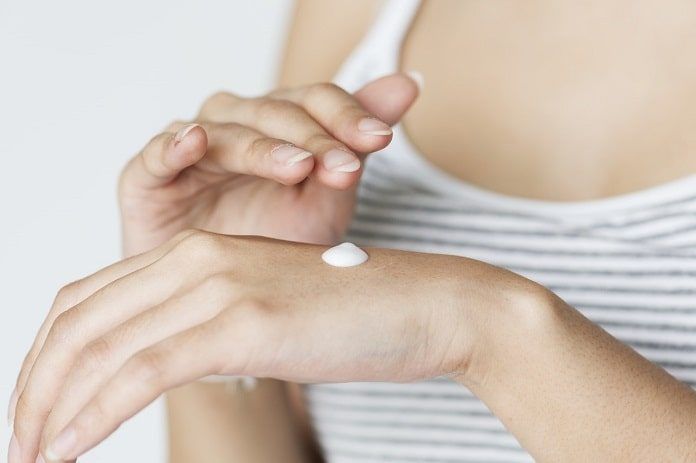A recent study published in JAMA Oncology by Baumann and colleagues investigated whether patients should avoid using topical agents several hours before undergoing radiation therapy.
The majority of patients who undergo radiation therapy experience some form of radiation dermatitis (skin damage). In some cases, radiation therapy may also be accompanied by pain, discomfort, pruritus (itchy skin) and infections. To alleviate these complications, patients employ the use of various topical agents such as skin creams, which may need to be applied on a regular basis.
Doctors have worried that these topical agents may significantly increase the radiation dose at the skin. Therefore, they have recommended that topical agents be avoided several hours prior to radiation therapy. The source of these concerns stem from the early 1950s, a time when radiation therapy involved exposing the skin to a relatively high dose of radiation. In modern times, however, radiation therapy involves the use of much lower doses of radiation and it might not be necessary to avoid topical agents beforehand.
A recent study published in JAMA Oncology by Baumann and colleagues investigated whether topical agent administration prior to radiation therapy increases exposure to radiation. First, the authors surveyed 108 clinicians and 133 patients to assess what percentage of doctors are still recommending that patients avoid the use of topical agents before therapy.
The authors conducted experiments using a tissue-equivalent phantom to measure the dose of radiation that the skin was exposed to after therapy with or without the application of two common topical agents, including a petroleum-based ointment and silver sulfadiazine cream. Additionally, preclinical experiments were performed in mice to assess whether the administration of topical agents increases the severity of skin damage following therapy by measuring DNA damage and cell death.
The surveys demonstrated that most doctors continue to recommend that patients avoid topical agents several hours prior to radiation therapy. They also found, however, that these recommendations might not be necessary since the presence of topical agents did not significantly increase the radiation dose at the skin during therapy. These findings were found to be consistent with preclinical studies in animal models which demonstrated that radiation therapy had a similar effect on mouse skin with or without the topical agent.
In conclusion, while many doctors continue to advise their patients to avoid using topical agents prior to receiving radiation, the data from the current study suggestions that these recommendations may not be necessary. These findings could have significant implications for patient health and their quality of life by allowing patients to use topical agents as necessary, without restrictions.
Written by Haisam Shah, BSc
Reference: Baumann, B. C., Verginadis, I. I., Zeng, C., Bell, B., Koduri, S., Vachani, C., … & Metz, J. M. (2018). Assessing the validity of clinician advice that patients avoid use of topical agents before daily radiotherapy treatments. JAMA Oncology.



